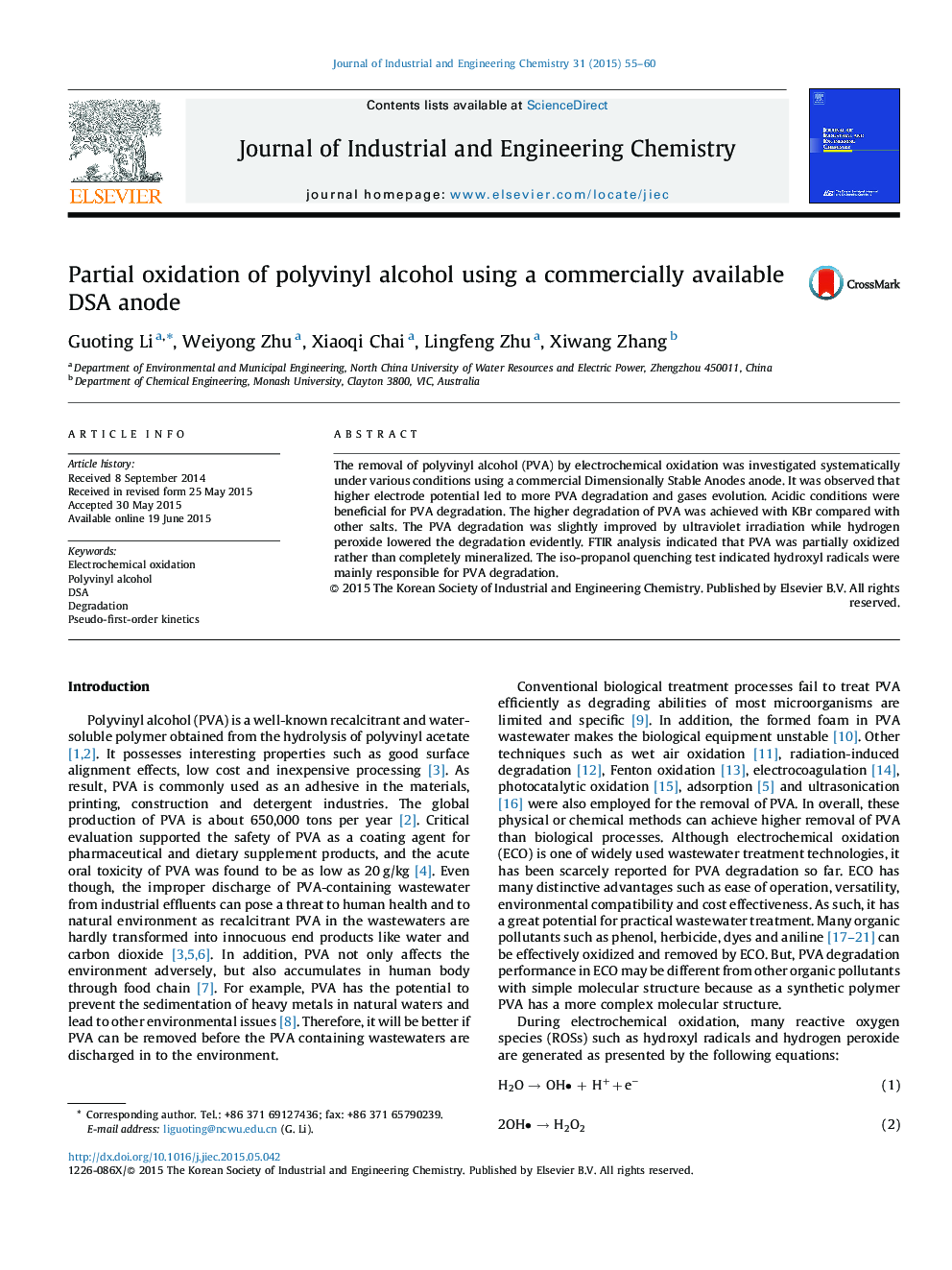| Article ID | Journal | Published Year | Pages | File Type |
|---|---|---|---|---|
| 226985 | Journal of Industrial and Engineering Chemistry | 2015 | 6 Pages |
•Polyvinyl alcohol was degraded by partial oxidation using DSA anode.•Acidic conditions were beneficial for PVA degradation.•Na2SO4 performed better for PVA degradation than NaCl.•The highest PVA degradation was achieved in the presence of KBr.•Hydroxyl radicals were mainly responsible for PVA degradation.
The removal of polyvinyl alcohol (PVA) by electrochemical oxidation was investigated systematically under various conditions using a commercial Dimensionally Stable Anodes anode. It was observed that higher electrode potential led to more PVA degradation and gases evolution. Acidic conditions were beneficial for PVA degradation. The higher degradation of PVA was achieved with KBr compared with other salts. The PVA degradation was slightly improved by ultraviolet irradiation while hydrogen peroxide lowered the degradation evidently. FTIR analysis indicated that PVA was partially oxidized rather than completely mineralized. The iso-propanol quenching test indicated hydroxyl radicals were mainly responsible for PVA degradation.
